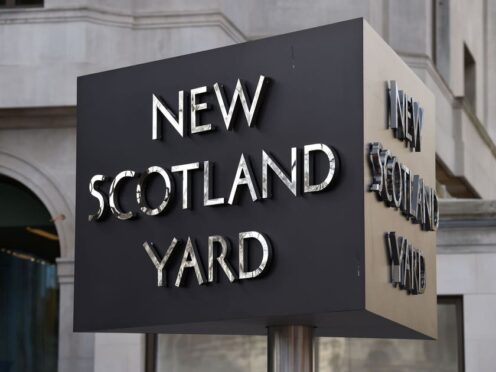
A woman who says she was deceived into having sex with an undercover police officer only found out his true identity more than 20 years later on social media, a public inquiry has heard.
The woman, referred to as Jenny, discovered that Trevor Morris, a close friend of hers in the early 1990s, had been a police spy on social media in 2019, the Undercover Policing Inquiry (UCPI) was told.
Giving an opening statement on Tuesday, Charlotte Kilroy KC, representing women who say they were deceived into relationships, said Jenny still had no answers about why she was targeted.
She was a member of the Socialist Workers Party, the Anti-Nazi League and was involved in the Stop the War movement in the early 1990s, before her work as a journalist led her to reduce her political activism.
Ms Kilroy said: “In 2019, Jenny discovered that Trevor Morris was a police officer on social media.
“She was hugely shocked and shaken to realise that someone with whom she thought she had formed a deep emotional connection, and with whom on the strength of that connection she had had sexual intercourse, was in fact a UCO (undercover officer).
“It has led her to mistrust many of those around her and to be cautious and guarded towards those who tried to befriend her.”
The opening statement from Charlotte Kilroy KC (The Category H Core Participants; “Bea”; “Jenny”) is startingshortly.
Please note that the live-stream will be subject to a 10-minute delay.
Watch the live stream: https://t.co/q5vBEMQhjX pic.twitter.com/3ZJOxQbzog
— UCPI (@ucpinquiry) July 2, 2024
Jenny knew Mr Morris under one of his cover names Bobby McGee. They became friends in 1992 or 1995, and later had a one-night stand in 1995 after a chance meeting in a bar, the inquiry was told.
Morris told her he was emigrating to Germany – in reality this was his cover extraction story because his undercover deployment was coming to an end, Ms Kilroy said.
The lawyer added: “He showered her with warmth and affection, and after an evening of intimate conversation about family, memories and politics and on the strength of the friendship that they had built up, Trevor Morris deceived her into sexual intercourse just before his deployment ended.”
Mr Morris, who is set to give evidence to the inquiry in early August, said in his statement that he did not recognise the woman’s real name.
He said he received no training as an undercover officer before he was deployed, and would sometimes use another civilian to pose as his partner, telling her he was undercover investigating drugs crime.
The latest stage of the massive public inquiry into undercover policing began on Monday, looking at the actions of the since-disbanded Met unit the Special Demonstration Squad (SDS) between 1983 and 1992.
Ms Kilroy is representing another woman referred to as Bea, who had a sexual relationship with Morris for around a year from 1992.
Reading from a statement written by Bea, the barrister said: “In reality, what Bobby did as an agent of the SDS was pointless and counterproductive in terms of improving our society, and personally damaging to me and his own family and others who were hurt as a byproduct of his state-sanctioned agitation.
“My main unhappiness, though, is with the people who produced the policy enabling undercover surveillance of us, and the politicians so desperate to retain the established hierarchies that it was felt necessary to undermine us in whatever way they felt was necessary.
“Bobby was a willing pawn in this game.”
She claimed that false intelligence given to the police fuelled violent clashes during an anti-BNP march in Welling, south-east London, in 1993, when it was claimed that SWP members had plotted to burn down a BNP bookshop, which they denied.
“I believe Bobby acted as an agent provocateur to try to justify his part in spying on an organisation which had no secrets, due to some misplaced belief that he was trying to do the best for his country, and also a sense of grandiosity,” she said.
Opening statements in the inquiry continue on Tuesday and Wednesday, before evidence hearings next week.

Enjoy the convenience of having The Sunday Post delivered as a digital ePaper straight to your smartphone, tablet or computer.
Subscribe for only £5.49 a month and enjoy all the benefits of the printed paper as a digital replica.
Subscribe